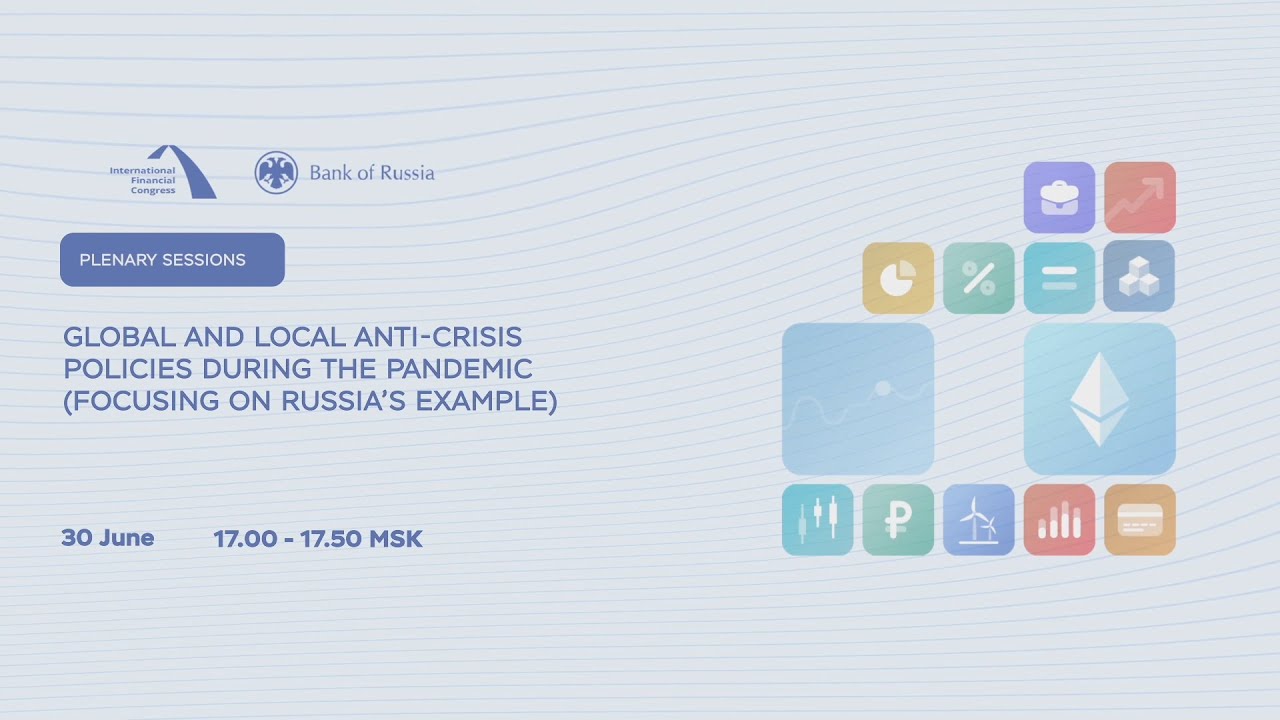INTERNATIONAL FINANCIAL CONGRESS
30 June 2021
In 2020, the coronavirus pandemic had a significant impact on the economies and healthcare systems of various countries. In response, central banks and governments in both developed and developing countries have adopted non-traditional instruments in addition to conventional measures. Monetary easing, asset purchases by central banks to ensure financial stability, relaxed regulations and other steps by central banks and governments helped reduce the pandemic’s impact on the households and the economies at large. At this session, we will try to determine the most and least effective policies. Which of them only worked as one-offs for an extraordinary situation, and which could be added to the standard anti-crisis toolkit? What lessons should we learn, and what issues should we address following the crisis?
See more:
https://ifcongress.ru/index/en
Global and local anti-crisis policies during the pandemic (focusing on Russia’s example)
